Bernie and Linda Rollin retire after five decades at CSU
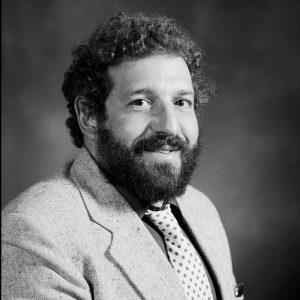
Bernie Rollin served as a University Distinguished Professor of Philosophy and the university bioethicist, along with appointments in Animal Sciences and Biomedical Sciences. He came to CSU in 1969 where he has remained for the past five decades. Bernie is the author or editor of over a dozen books and hundreds of articles and is the principal architect of 1985 federal legislation dealing with the welfare of experimental animals. Despite retirement, Bernie is not slowing down and is halfway through his next book, an introduction to veterinary ethics.
Bernie is known by his many students as an excellent teacher who encourages their philosophical development by employing the Socratic method. His colleagues remember him for his probing and analytic mind, his quick wit and salty language, and his passion for improving the lives of animals.
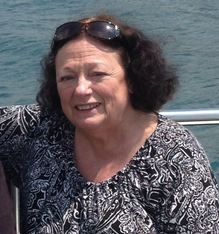
Linda Rollin joined Bernie in the department after earning her PhD in Mathematics and briefly teaching both English composition and math. She will be remembered most for her role as Director of the Logic and Critical Thinking Program. It is hard not to see how amazing and powerful the study of Logic can be when discussing it with Linda. Linda’s enthusiasm for logic (and her passion about textbook authors and editors getting it wrong) fueled many of the weekly mentoring sessions she held with her Logic GTAs. Linda’s program was so impactful in part because it was really a “Logic Immersion” program. Attending each class session, meeting weekly to discuss behind-the-scenes rationale, hearing her guidance, and learning her tricks of the trade…all of this shaped her GTAs understanding of what it takes to be a good teacher.
During the second year of the program, her mentees were given the opportunity to teach their own section of Logic under the guidance and expertise of Linda. Alumna Alyson Huff took all of Linda’s lessons to heart: “Still to this day, after 17 years teaching Logic, I use some of Linda’s examples to illustrate the continuously perplexing nuances for students, such as the ‘juicy oranges’ rule. Thank you, Linda, for being a wonderful teacher, a great role model, a caring person, and an inspiration!”
Alumni News
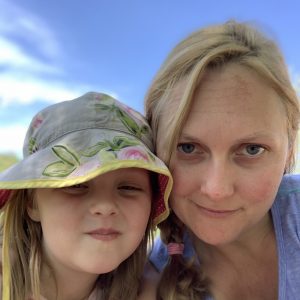
Alyson Huff, both alum and philosophy faculty (at Front Range and CSU), completed the first part of a year-long professional development program, the Faculty Institute for Inclusive Excellence. Alyson is also an Advisory Board member for the International Writing Across the Curriculum (IWAC) conference. This summer, at IWAC, Alyson facilitated a breakout session, “Alternative Approaches to Grading & Course-Based Evaluation,” and co-presented a conference session, “Holistic Assessments: A Better Way to Assess Learning”.
To prepare for remote instruction, Alyson redesigned her courses to develop meaningful, effective, and efficient ways to teach remotely, creating a hybrid of Zoom sessions and Canvas activities and discussions. Alyson also had the rollercoaster adventure of helping her first grader learn remotely. (The cats were well pleased with this set-up.) Despite the workload, she still found time to do some fun hikes with her daughter and spend time with family.

Kelsi Nagy finished her PhD in spring 2020 in cultural geography at the University of Oxford. Part of her doctoral projects on urban cows and plastic pollution in India, along with her photos, were published in the Feral Atlas, a digital science-art project spearheaded by anthropologist Anna Tsing. They are also on display in an exhibit at the Arbor Institute in Boulder, CO. After teaching environmental ethics in the department this spring, Kelsi welcomed her daughter Brooke Chandler-Nagy on May 12th.
In November, 2020, Addison Phillips accepted the Environmental Program Director position at the Colcom Foundation in Pittsburgh. Addison works with the full spectrum of environmental non-profits – from acid mine drainage remediation to land conservation to urban forests. He currently manages $5 – $6 million in grants annually. Colcom’s mission is to create a sustainable future for all Americans by addressing the two primary drivers of environmental degradation: human population growth and consumption of resources.
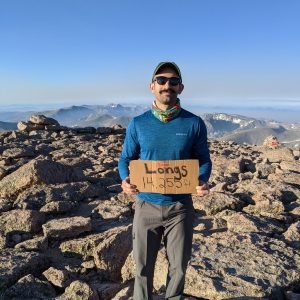
Faculty News
Laura Arcila Villa presented a paper on Anne Conway’s Christology and metaphysics at the annual conference of the Centre for Research in Quaker Studies and the Quaker Studies Research Association. The conference had been cancelled last year due to the pandemic but proceeded this year via zoom at Woodbroke Centre, Birmingham, UK. Since February of this year, Laura is also serving on the board of the Interfaith Solidarity and Accompaniment Coalition (ISAAC). Laura has been finding this incredibly rewarding as she’s learning a lot about the challenges experienced by immigrant groups in northern Colorado and how ISAAC has been growing in its efforts to meet some of their needs. This summer, Laura retreated to a cabin in the woods in northern Michigan and has been working on a larger project on Anne Conway. She is enjoying her time “off the grid.”
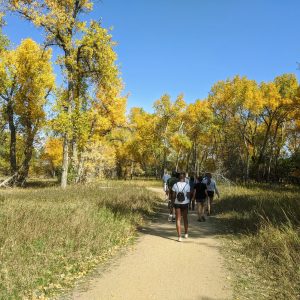
Ashby Butnor spent the year teaching on campus, remote learning with kids at home, and serving on many committees, including the Provost’s AUCC course development team, Executive Board of the Center for Women’s Studies and Gender Research, CLA Strategic Planning Task Force on Structuring Change, University Student Success and Implementation Committee, University Communicators’ Network, and the department assessment committee. This summer, she participated in a TILT course on active learning and is looking forward to applying its lessons to her new first-year seminar on happiness and the good life.
This past Fall, Phil Cafaro began hosting The Population Factor on Earthx TV, a new internet TV network out of Dallas, Texas. The show aims to become the spot for honest and probing discussion of population issues in the English-speaking world. Topics from season one include population and climate change, population and the UN’s sustainable development goals, and how smaller populations can open up opportunities for rewilding former agricultural land.
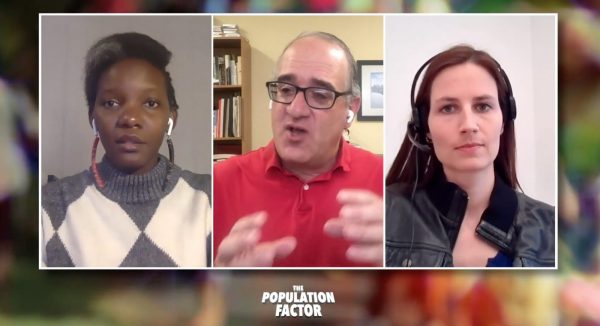
Paul DiRado has been working on his contribution to a volume on the pre-Socratic philosopher Parmenides, Inquiring into Being: Essays on Parmenides, edited by Colin C. Smith (SUNY Press). Paul is examining how the ancient Greek noun noos and the verb noein (usually translated thinking/to think) function in Homer, Hesiod, and Parmenides. In addition to teaching, Paul and graduating senior Frank Harris worked through the entirety of Heidegger’s Being and Time together during the Spring 2021 semester. Paul is looking forward to serving as the faculty advisor to the popular Philosophy Club in the coming year.
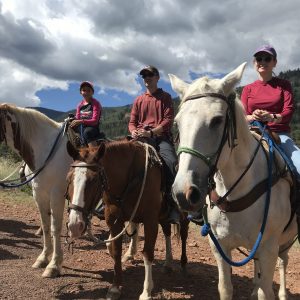
Eric Easley had a busy year working from home. He coached the Ethics Bowl team to qualifying for and competing in the National Competition this year, successfully earned a promotion to senior instructor, transitioned his classes to OER—an open access, digital format, helped facilitate the Teaching Philosophy Reading Group for Philosophy Department faculty and graduate students. Eric also served on the online committee and the assessment committee for the department and continued to pursue professional development opportunities on Program and Curriculum Assessment. As for “fun” stuff, Eric continued to help educate his daughter through online school, expanded the horizons of his pedagogy by digging deeply into Paulo Freire’s Pedagogy of Hope, and tried his best to not be Clark Griswold on his first actual summer family vacation.
Eric is very much looking forward to coming back to campus face-to-face. He misses the more dynamic interactions that come from face-to-face contact with students. He, strangely, misses the bustle of campus and, not so strangely, he misses seeing colleagues even just in passing or brief hellos. Eric misses hearing Jeff Kasser’s jazz floating down the hall. He’s looking forward to cleaning a year plus of undisturbed dust from his office and getting back to work on campus.
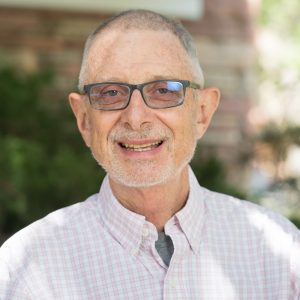
Harold Gamble has just announced his plans to retire at the end of 2021, after joining the department in January 2007. Harold was the first to teach an online course for the department after persuading a hesitant chair, Jane Kneller, in 2009. He worked with TILT course designer Barbara Maynard to develop both Moral & Social Problems and Logic and Critical Thinking for online delivery after being inspired by Michael Sandel’s online course on justice at Harvard. Another highlight of Harold’s time in the department was team-teaching Agricultural and Food System Ethics with Thomas Holtzer. Harold recalls, “I explored ethical issues and he provided the agricultural content. I loved interacting with him.” Harold likely will be remembered most for his work coordinating the Jann Benson Ethics Center since its inception in 2012, which included both mentoring graduate students and supporting undergraduates with their philosophical writing. Harold’s plans now include studying astronomy to have conversations with his son, who will be a first-year student majoring in astronomy. He also plans to keep up with his fascination with the ethical issues of artificial intelligence.
Moti Gorin earned tenure this year and was promoted to Associate Professor. On the research front, he took part in a workshop on online manipulation with his paper “Online Gamification, Manipulation, and Domination.” The workshop papers are forthcoming in an edited volume published by Routledge. Moti also participated in course development for PHIL 201: Ethical Computing Systems to be available through CSU Online.
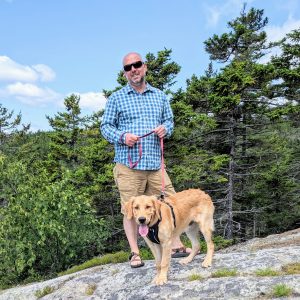
Eirik Harris managed to get himself to Colorado in time to start teaching in January but is still waiting for his belongings to arrive from Hong Kong. While he has yet to meet most of his new colleagues face-to-face, he had fun teaching a socially-distanced graduate seminar on Chinese Political Philosophy and developing an online version of World Philosophies (with the invaluable assistance of MA student Shayne Weber!). His essay, “Harmony and Nature: Thoughts from Laozi and Shen Dao” appeared in Harmony in Chinese Thought: A Philosophical Introduction (Rowman & Littlefield, 2021), and the book he has been editing with Henrique Schneider, Adventures in Chinese Realism: Classic Philosophy Applied to Contemporary Issues, is finally off his hands and being prepared for publication by SUNY Press. He’s also been practicing his Zoom presentation skills, giving a talk on “Han Fei on Ethics in the Corporate Realm” for the University of South Dakota’s Annual Lecture in Ethics, Law, and Society in March and contributing to a symposium on “Talking from Traditions: Problems and Prospects” at the Pacific APA in April. Not only did he survive his first semester, Eirik also managed to navigate the Colorado real estate market and find a home!
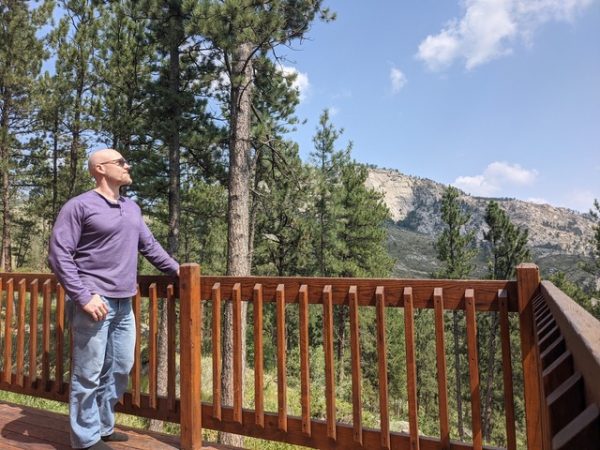
Jeff Kasser was again able to explore new terrain with graduate students. He led a seminar on the epistemology of disagreement in the spring semester of 2021. Along with graduate student Josh Brekel, he participated in the Statistics Department Reading Group, and his work continues to explore intersections among the history and philosophy of statistics along with epistemology and philosophy of science. His most recent paper is “Peirce, James, and Dewey as Philosophers of Science,” forthcoming in the Routledge Handbook of Pragmatism. He also spent much of 2020-2021 reacting to the implications of the pandemic in his role as Director of Undergraduate Studies.
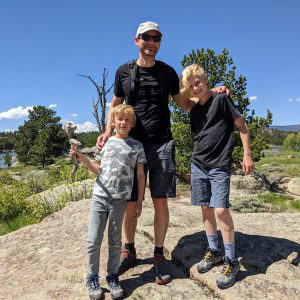
Completing his second year as department chair during a global pandemic has certainly kept Matt MacKenzie busy! In the fall, Matt taught a new graduate seminar on the nature of the self, drawing on Indian and Western traditions. Also in 2020, his chapter “Volition, Action, and Skill in Indian Buddhist Philosophy” was published in the Routledge Handbook of Skill and Expertise and his chapter, “A Post-Reductionist Buddhism?” was accepted for publication in Reasons and Empty Persons: Mind, Metaphysics, and Morality: Essays in Honor of Mark Siderits (Springer).
In 2021, he submitted “Meditation and the Plasticity of Self-Experience” for the Routledge Handbook of the Philosophy of Meditation and presented “Look! How Wonderful! On Chakrabarti’s Phenomenology of Wonder and Witness” at the Pacific APA. He is also pleased to report that his book manuscript, Buddhist Philosophy and the Embodied Mind, was accepted for publication in the series Critical Inquiries in Comparative Philosophy (Rowman & Littlefield). He has enjoyed hiking, camping, and traveling with his family this summer.

In the fall, Katie McShane taught a grad seminar on welfarism and theories of welfare. She also turned in an invited paper, “Nature, Animals, and Meaning in Life” for the Oxford Handbook of Meaning in Life. In the spring, Katie began her yearlong sabbatical. So far, she’s been working on a paper on welfarism in environmental ethics and a paper on the bases of equality in environmental ethics.
Katie also engaged in public outreach this year: an interview for Wired magazine about a controversy over Tiehm’s buckwheat, a wild buckwheat threatened by lithium mining in Nevada; a presentation at a panel called “Awe, Ethics, and River Conservation” for World Wisdoms Project, a local interfaith group; and an interview on awe for the “Visit Estes Park” podcast. Katie and her husband Jeff also honed their IT skills helping their kids with “remote learning” and did a lot of hiking with the kids, including a summer trip to Glacier National Park.
Nathalie Morasch presented her paper “Must semantic externalists reject conceptual amelioration?” at the International Social Ontology Society this August. She had a busy year teaching from home and homeschooling her two young children as her spouse was tasked with COVID-related work projects. Like many, she acquired a pandemic puppy, Luna (photo below), who helped her family persevere throughout the difficult year. Nathalie is in awe of many of her students who carried the burden of even more challenging responsibilities.

Domenica Romagni gave the inaugural lecture for the virtual Workshop on Spinoza and Early Modern Philosophy, hosted by Johns Hopkins, last November. The lecture featured Domenica’s work on “Spinoza’s Aesthetics,” which was published in the Blackwell Companion to Spinoza (2021). Domenica has remained busy with her research by working on revisions for a couple journal articles and completing another that is currently under review. Paper topics include: Descartes’ understanding of aesthetic pleasure and how it augments the function of sensory perception; Descartes’ understanding of emotional states as a special kind of second-order representation; an examination of how music theory helped to topple the Aristotelian theory of qualitative forms. Domenica enjoyed teaching the capstone seminar last fall on emotions in the early modern period and is looking forward to her graduate seminar this fall on scientific explanation in Descartes, Galileo, and Kepler.
Kenneth Shockley spent much of his academic year-in-quarantine working on his book project, Reacting and Responding to Environmental Change: The Environmental Moral Problem and its Narrative Resolution. He’s also busily working on the idea of environmental harm, something that seemed particularly compelling during a year of wildfires and COVID-related pollution. He published a paper on hope in a time of climate change in The Journal of Social Philosophy, and coauthored a book chapter on collective responsibility, and another on climate governance. While COVID put a damper on conference travel, Ken was happy to be able to participate in the annual meetings of the International Society for Environmental Ethics, the annual Manchester Centre for Political Theory conference, and a few other workshops remotely. He is also thrilled to start work with two CSU-based research collaborations: the Global Wildlife Values Project project, and the Climate Adaptation Partnership initiative. He continued as a fellow in CSU’s Inaugural Program in Humanities, and was pleased to serve as part of the “Discovery With Impact” subgroup of the College’s Strategic Planning Task Force. After pandemic-based delays, he was happy to teach his annual offering of Environmental Ethics at the Mountain Campus this summer.
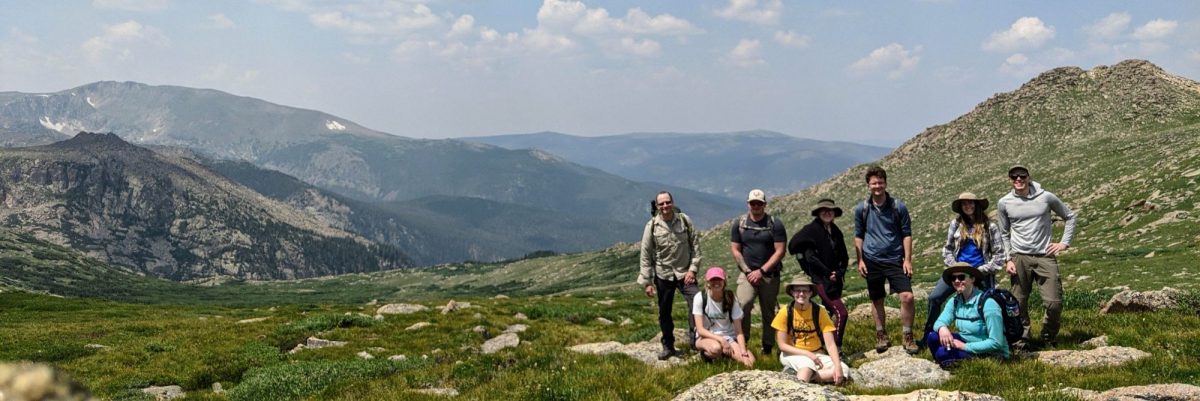
Emeritus News
Richard Kitchener continues to work on naturalistic epistemology and psychology, publishing a piece on “Epistemological Behaviorism” (Behavior and Philosophy, 2018) and another on “The Epistemology of Folk Epistemology” (Analysis, 2019). Currently, he is finishing the essay “Does the Chimpanzee have a Theory of Knowledge? Animal Cognition and Epistemology.” Dick also continues his interest in Piaget’s genetic epistemology, reading a paper on “Jean Piaget’s Conception of Epistemology” at a meeting of the Jean Piaget Society Annual Symposium in Amsterdam (2018). Most recently, he is finishing a piece in celebration of the career of Bernie Rollin, “Science with an Ethical Face.”
Puppy News
The pandemic brought a plethora of puppies to the philosophy faculty. In addition to Alfie Gorin (above), we welcomed Greta Easley, Shea Shockley, and Luna Morasch.


